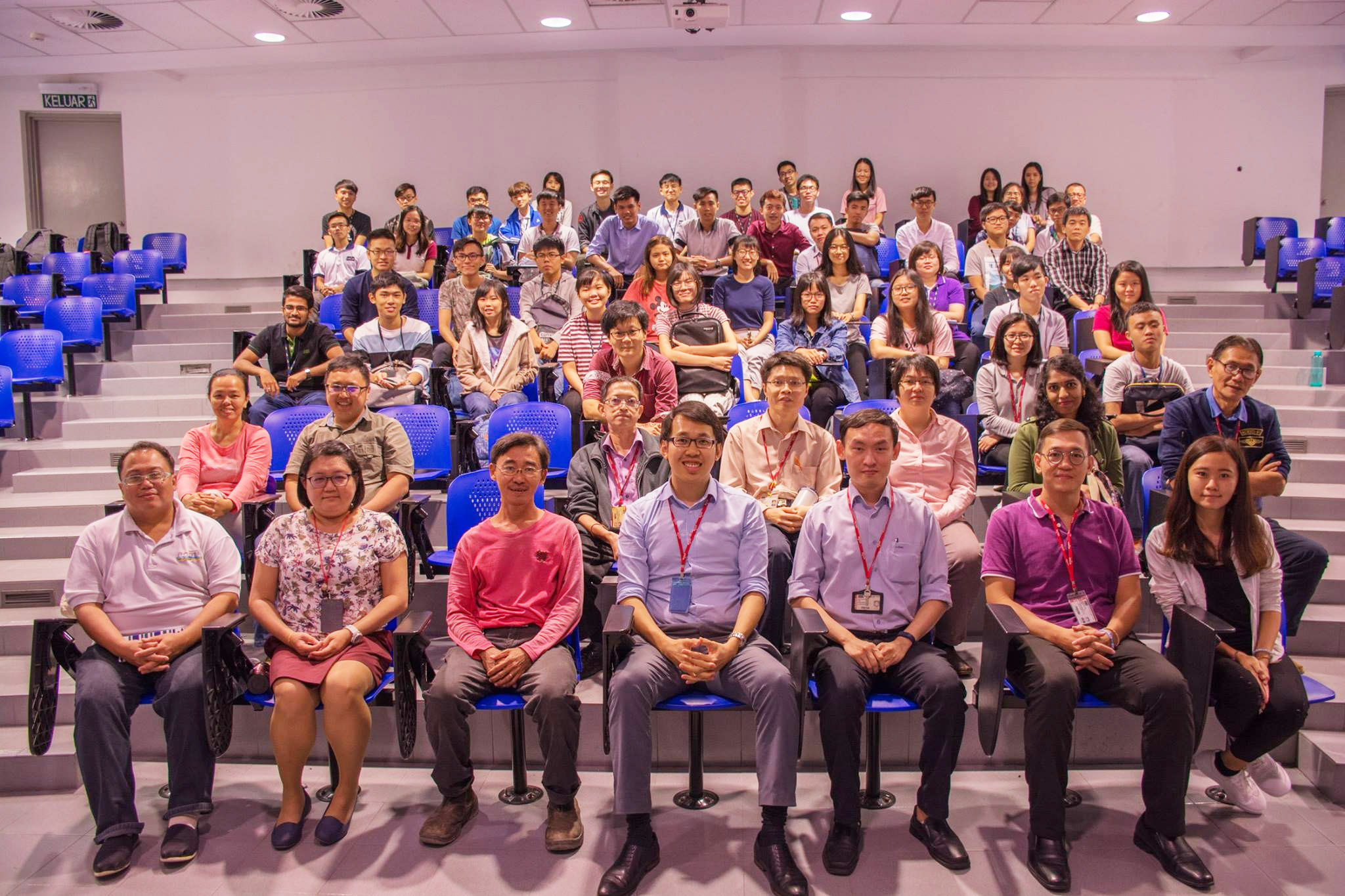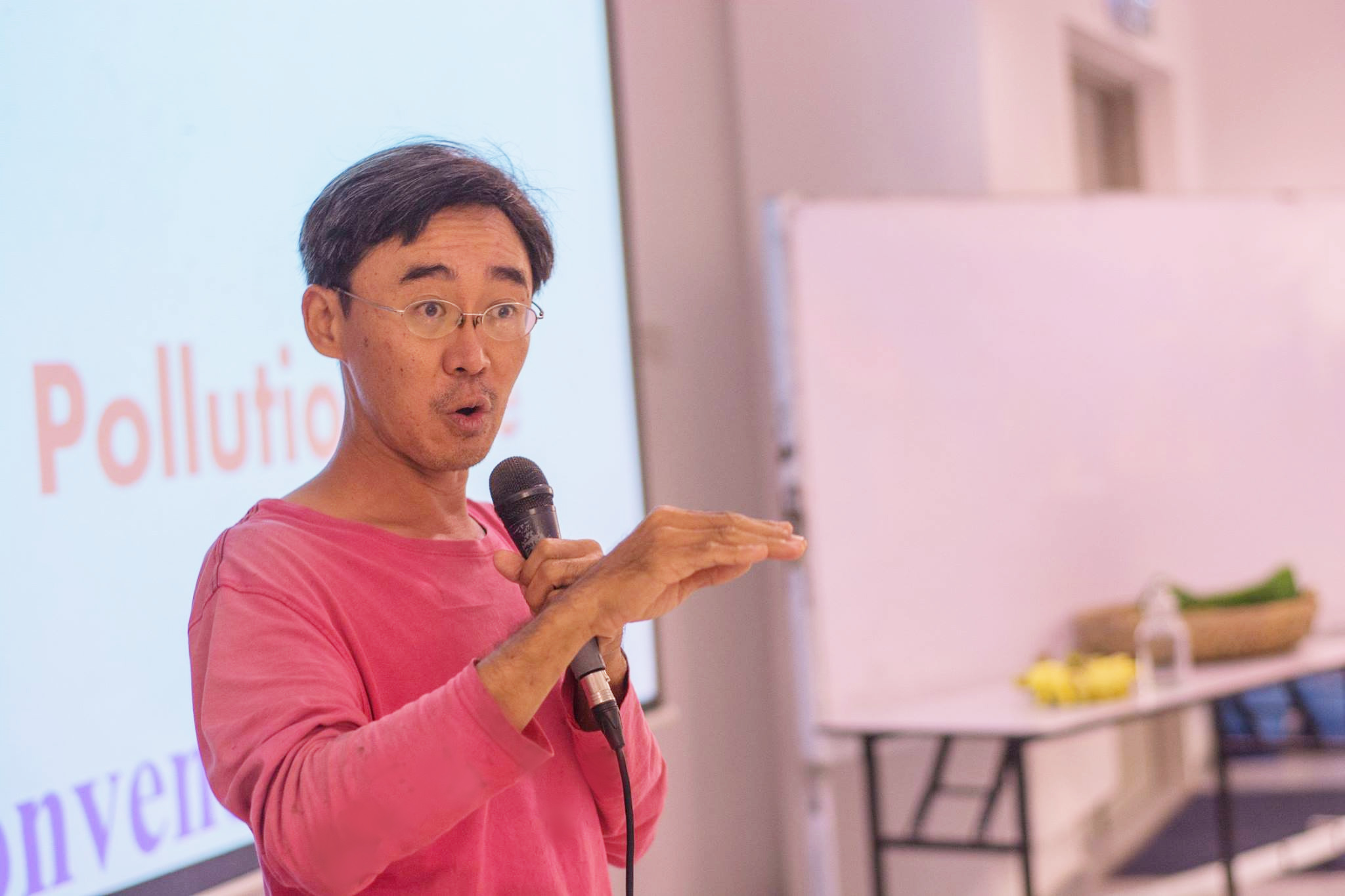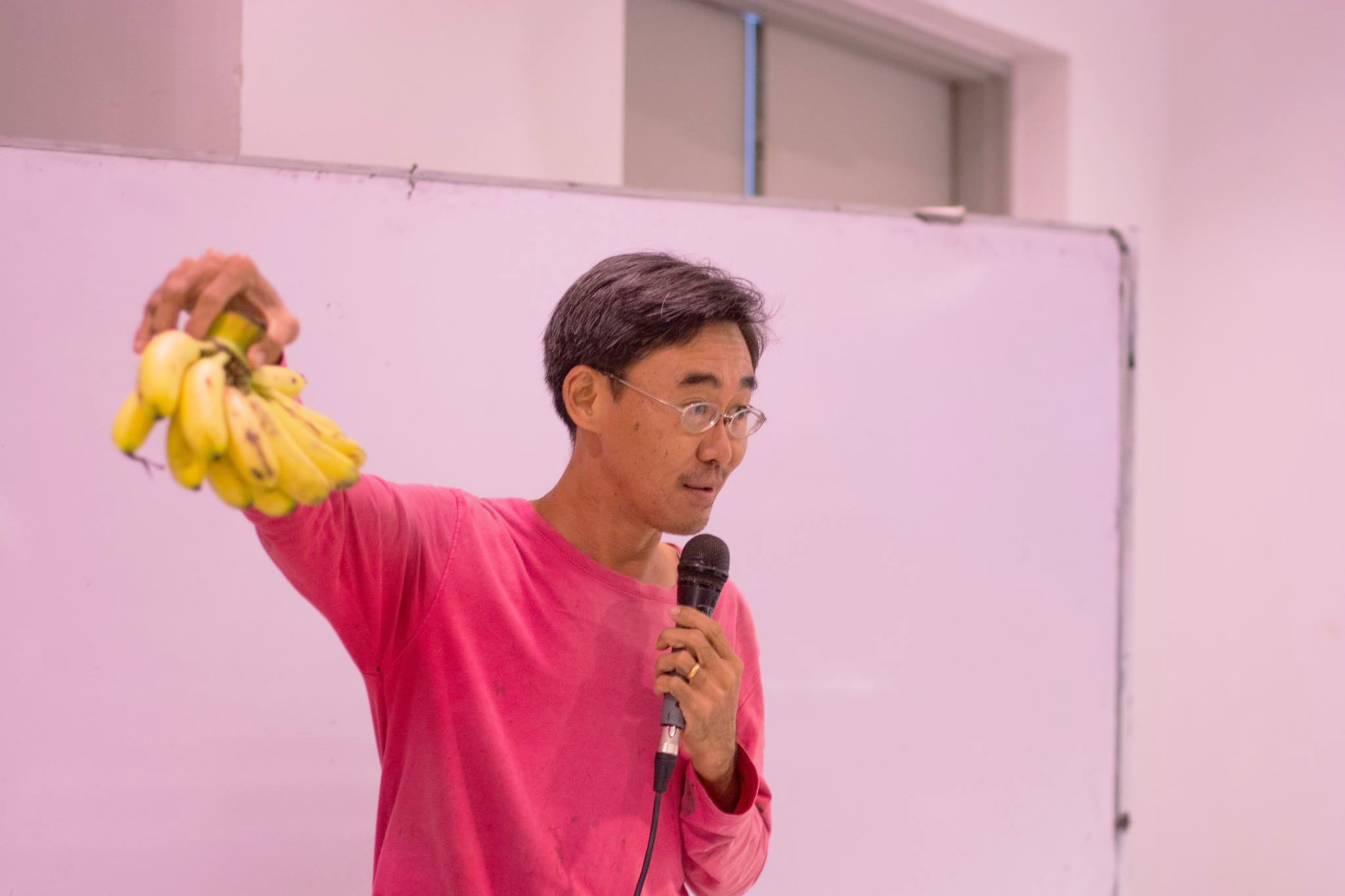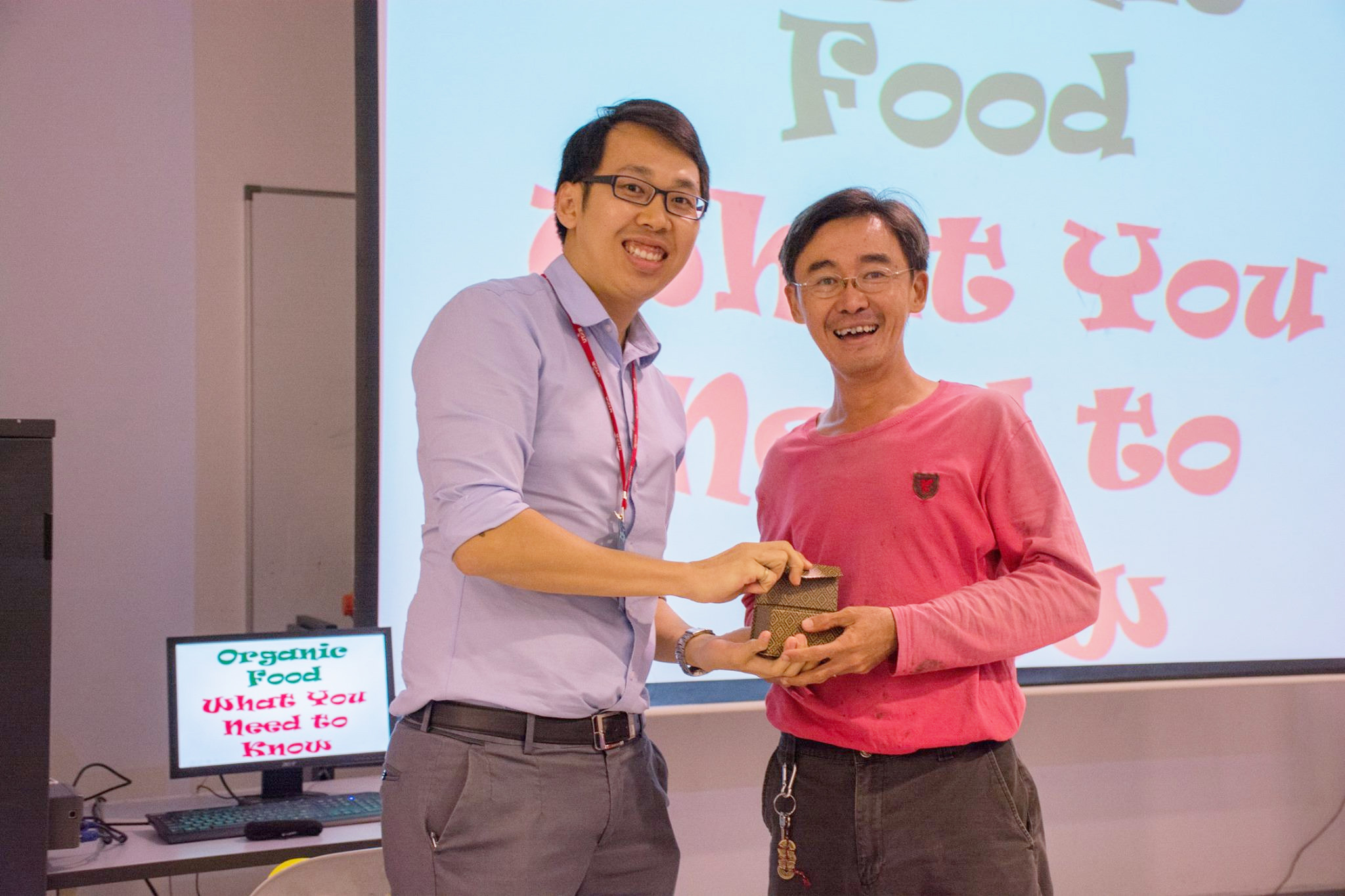

An insightful talk from Tung
When the invited speaker, also a bio-dynamic farmer, Tung Siew Hoe shared his experience in organic farming, he debunked the myth of many who once perceived that consuming organic food is costly or that it incurs high expenditure. That belief was said to be false by Tung, who went on to explain the reasons and benefits of organic foods at the “Organic Food: What You Need to Know” talk, organised by UTAR Agricultural and Food Science Society on 29 November 2018 at Kampar Campus.
As part of the University’s effort to encourage students to pursue knowledge acquisition from innovations and individuals who have made a positive impact to the society and the environment, the talk also aimed to increase the consumers’ awareness of organic fresh produce in Malaysia and promote the benefits of organic farming.
Present at the talk were Faculty of Science Deputy Dean for R&D and Postgraduate Programmes Dr Phoon Lee Quen, Organising Chairperson Dr Kuan Chee Hao, staff and participants. Tung also brought along his wife and two friends to share their bio-dynamic agriculture experience and introduced his farm named “Centainnel Agriculture” to participants through a video that was featured in Astro AEC Channel of the “Food Producers” section.
“Organic farming is important and can be understood as an agricultural method that does not make use of chemical fertilisers and pesticides. Hence, organic fruits and vegetables are safer and healthier compared to conventional fresh produce as they are free of pesticides, fungicides and herbicides residues. Besides, organic food is often fresher because it does not contain preservatives that make it last longer. In Malaysia, organic produce is often produced on smaller farms near where it is sold. In addition, organic farming is better for the environment. Organic farming practices reduce pollution, conserve water, reduce soil erosion and increase soil fertility. Farming without pesticides is also better for nearby birds and animals as well as people who live close to farms. Therefore, the use of modern technology in combination with organic farming practices helps in creating a balanced and sustainable environment for crop growth,” said Dr Kuan.
Tung, who once was a weekend farmer and now a fulltime organic farmer, shared about the farming method that he uses, which is bio-dynamic agriculture; a method that focuses on the health and condition of the soil, taught by his Australian master. Quoting from his master, “I am not saying that you are wrong, but I am just telling you there is a better way”, Tung explained “Bio-dynamic agriculture ensures that the soil is in a good condition before the crops are planted. That way, the crops can grow healthily. Pests are prone to attack weak crops, and that is one of the indications that I used to recognise the healthiness or condition of my soil. If there are too many pests, it means my crops are too weak and it tells me that need to cultivate my soil again.”

Tung describing the types of farming practised
Although there are various types of farming, which are conventional farming, pollution-free farming, organic farming and bio-dynamic agriculture, he emphasised that not all farming produce organic food. For instance, the pollution-free farming, according to Tung, though in a restricted amount, the farmers of that farming still use chemical fertilisers and pesticides. However, with bio-dynamic agriculture, animal manure is fully fermented to its humus form before the farmer uses it as fertilisers for the crops. In the humus form, Tung elucidated that the crops are able to absorb water when necessary and prevent excessive intake of water which can weaken the crops or even rupture the plants’ cells.
Tung also encouraged participants to consume organic food, with the reasons being, organic food has better taste or flavour, enables the consumer to feel more energised without large quantities, eco-friendly, promotes sustainable farming and is one of the healthiest diets.
“When you consume organic food, you are not just ingesting the food, but you are also “consuming” the whole concept – environmental friendly concept. You see, organic farming or specifically bio-dynamic agriculture cultivates the soil, which in the long run, makes the soil healthier. With the soil’s condition improving over time, crops can be planted over and over again in the same land. This is also known as sustainable farming. Bio-dynamic agriculture also does not burden the environment, and at my farm, there is a balanced ecosystem between the pests and its predators – a natural food chain. It is unlike the conventional farming which uses harsh chemicals and destroy the nutrients in the soil and cannot be used over again, or perhaps the land needs more time to recover,” explained Tung.
The participants were also taught to differentiate the authenticity of organic food by getting to know the farmer or producer of the food sold in supermarkets; visit the organic farm to ensure the farm uses organic farming; and know the various types of certification for organic food.
The talk ended with an interactive Q&A session, and with Tung demonstrating the difference between the bananas he planted and the one bought from the supermarket.

Tung demonstrating the differences in the banana brought from the supermarket

From left: Dr Kuan presenting a token of appreciation to Tung
© 2019 UNIVERSITI TUNKU ABDUL RAHMAN DU012(A).
Wholly owned by UTAR Education Foundation Co. No. 578227-M LEGAL STATEMENT TERM OF USAGE PRIVACY NOTICE